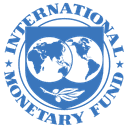Master macroeconomic policy analysis and program design through IMF's comprehensive course. Learn to forecast economic sectors and create policy programs.
Master macroeconomic policy analysis and program design through IMF's comprehensive course. Learn to forecast economic sectors and create policy programs.
This comprehensive course focuses on developing advanced skills in macroeconomic policy analysis and program design. Students will work with real economic data to simulate IMF desk economists' work in country surveillance. The course is structured in two parts: first, analyzing economic outlooks and building baseline scenarios for major macroeconomic sectors; second, exploring how various policies can address economic imbalances. Through hands-on exercises, participants learn to construct projections, generate consistent forecasts, and design IMF-supported lending programs. The course emphasizes practical application of macroeconomic theory and policy analysis tools.
4.5
(8 ratings)
24,693 already enrolled
Instructors:
English
English
What you'll learn
Construct projections of major economic sectors assuming unchanged policy
Generate consistent sectoral forecasts incorporating accounting and behavioral perspectives
Apply macroeconomic models to analyze policy change effects
Identify economic vulnerabilities in emerging market economies
Design comprehensive macroeconomic policy programs
Skills you'll gain
This course includes:
PreRecorded video
Graded assignments, exams
Access on Mobile, Tablet, Desktop
Limited Access access
Shareable certificate
Closed caption
Get a Completion Certificate
Share your certificate with prospective employers and your professional network on LinkedIn.
Created by
Provided by

Top companies offer this course to their employees
Top companies provide this course to enhance their employees' skills, ensuring they excel in handling complex projects and drive organizational success.





Module Description
This comprehensive macroeconomics course focuses on practical policy analysis and program design. The curriculum covers construction of economic projections across real, external, government, and monetary sectors, emphasizing both accounting and behavioral consistency. Students learn to use macroeconomic models for policy analysis, identify economic vulnerabilities in emerging markets, and develop policy program scenarios. The course simulates real-world IMF desk economist work, providing hands-on experience with actual economic data and policy formulation. Special attention is given to understanding policy impacts and designing IMF-supported lending programs.
Fee Structure
Instructors

5 Courses
Distinguished IMF Economist and Global Financial Policy Expert
Evan Tanner currently serves as a Senior Economist in the Asia Division of the IMF's Institute for Capacity Development, where he has made significant contributions to global economic education and policy development. His impressive career encompasses extensive experience across multiple regions including Latin America, Asia, Africa, the Middle East, and Europe. As a key figure at the IMF, he has designed and delivered highly sought-after training courses for economists worldwide focused on public policy. His academic background includes a Ph.D. in Economics from the University of California, Los Angeles, and he has held teaching positions at prestigious institutions including the University of Miami, Thunderbird School of Global Management, and UCLA. Before joining the IMF, where he developed economic forecasting tools and policy evaluation frameworks in the Research Department, Tanner established himself as a prolific scholar with numerous publications in leading economic journals. His research has significantly contributed to various areas of economic policy, including fiscal sustainability, monetary policy, exchange market pressure, and public debt management

3 Courses
Leading Expert in Macroeconomics and International Monetary Policy
Adina Popescu is a Senior Economist in the Strategy, Policy and Review Department at the International Monetary Fund, where she has held various positions including roles in the Institute for Capacity Development and the European Department. With a PhD in Economics from the London Business School focusing on public expenditure optimization, her research concentrates on applied and quantitative macroeconomics, as well as Bayesian and frequentist econometrics. Before joining the IMF, she worked at the European Central Bank in monetary policy implementation, strategy, and research. Her academic work has been widely recognized, contributing to significant publications on macroeconomic topics, including analysis of fiscal rules and sovereign spreads. Originally from Romania, Popescu combines her experience in economic program supervision with a strong foundation in quantitative research, making her an authoritative voice in international economic policy. Her work at the IMF includes developing training courses and providing policy guidance on macroeconomic issues, while her research continues to influence understanding of monetary and fiscal policy interactions.
Testimonials
Testimonials and success stories are a testament to the quality of this program and its impact on your career and learning journey. Be the first to help others make an informed decision by sharing your review of the course.
Frequently asked questions
Below are some of the most commonly asked questions about this course. We aim to provide clear and concise answers to help you better understand the course content, structure, and any other relevant information. If you have any additional questions or if your question is not listed here, please don't hesitate to reach out to our support team for further assistance.



